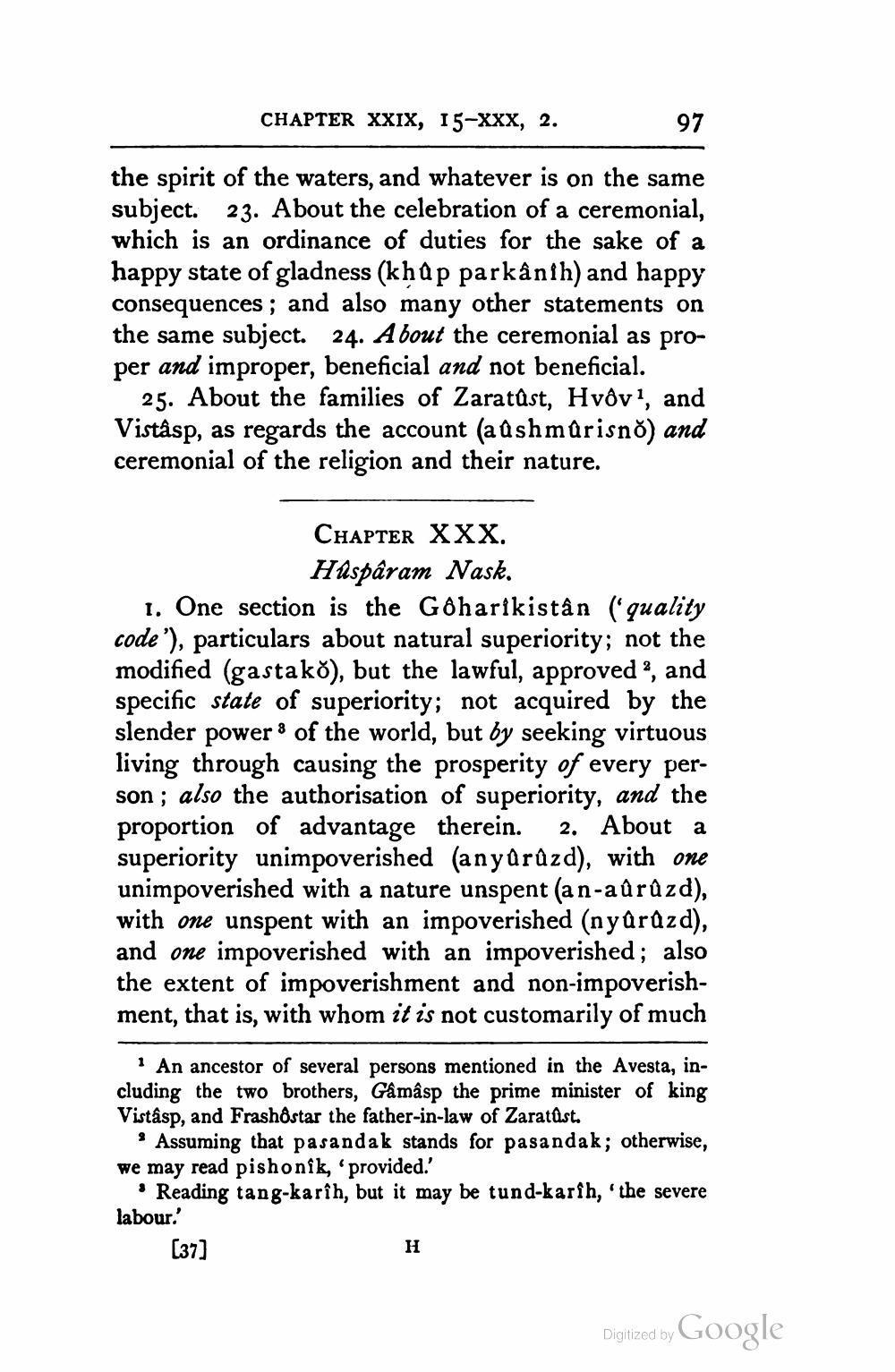________________
CHAPTER XXIX, 15-XXX, 2.
the spirit of the waters, and whatever is on the same subject. 23. About the celebration of a ceremonial, which is an ordinance of duties for the sake of a happy state of gladness (khup parkânih) and happy consequences; and also many other statements on the same subject. 24. About the ceremonial as proper and improper, beneficial and not beneficial.
97
25. About the families of Zaratûst, Hvôv1, and Vistâsp, as regards the account (aûshmûrisno) and ceremonial of the religion and their nature.
CHAPTER XXX. Hûspáram Nask.
1. One section is the Gôharikistân ('quality code'), particulars about natural superiority; not the modified (gastakŏ), but the lawful, approved, and specific state of superiority; not acquired by the slender power of the world, but by seeking virtuous living through causing the prosperity of every person; also the authorisation of superiority, and the proportion of advantage therein. 2. About a superiority unimpoverished (anyûrûzd), with one unimpoverished with a nature unspent (an-aûrûzd), with one unspent with an impoverished (nyûrûzd), and one impoverished with an impoverished; also the extent of impoverishment and non-impoverishment, that is, with whom it is not customarily of much
1 An ancestor of several persons mentioned in the Avesta, including the two brothers, Gâmâsp the prime minister of king Vistâsp, and Frashôstar the father-in-law of Zaratust.
Assuming that pasandak stands for pasandak; otherwise, we may read pishonîk, 'provided.'
'Reading tang-karîh, but it may be tund-karîh, 'the severe labour.'
[37]
H
Digitized by
Google




